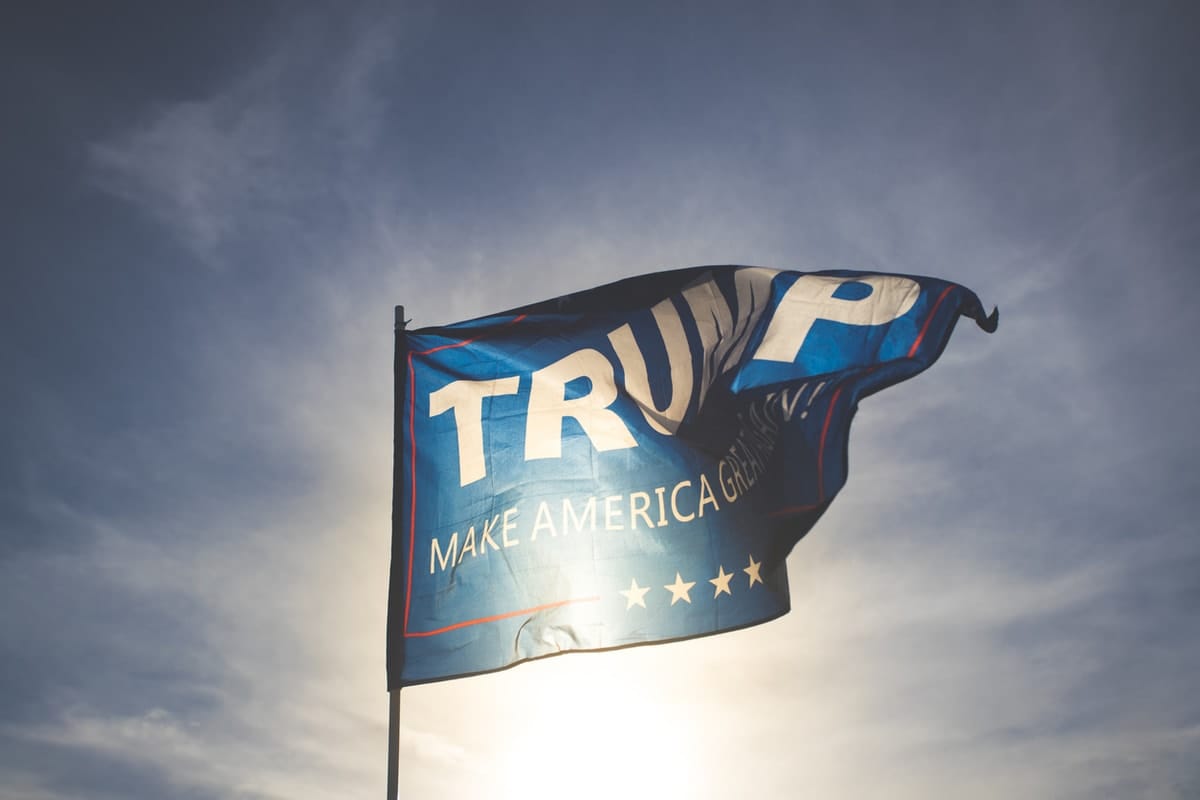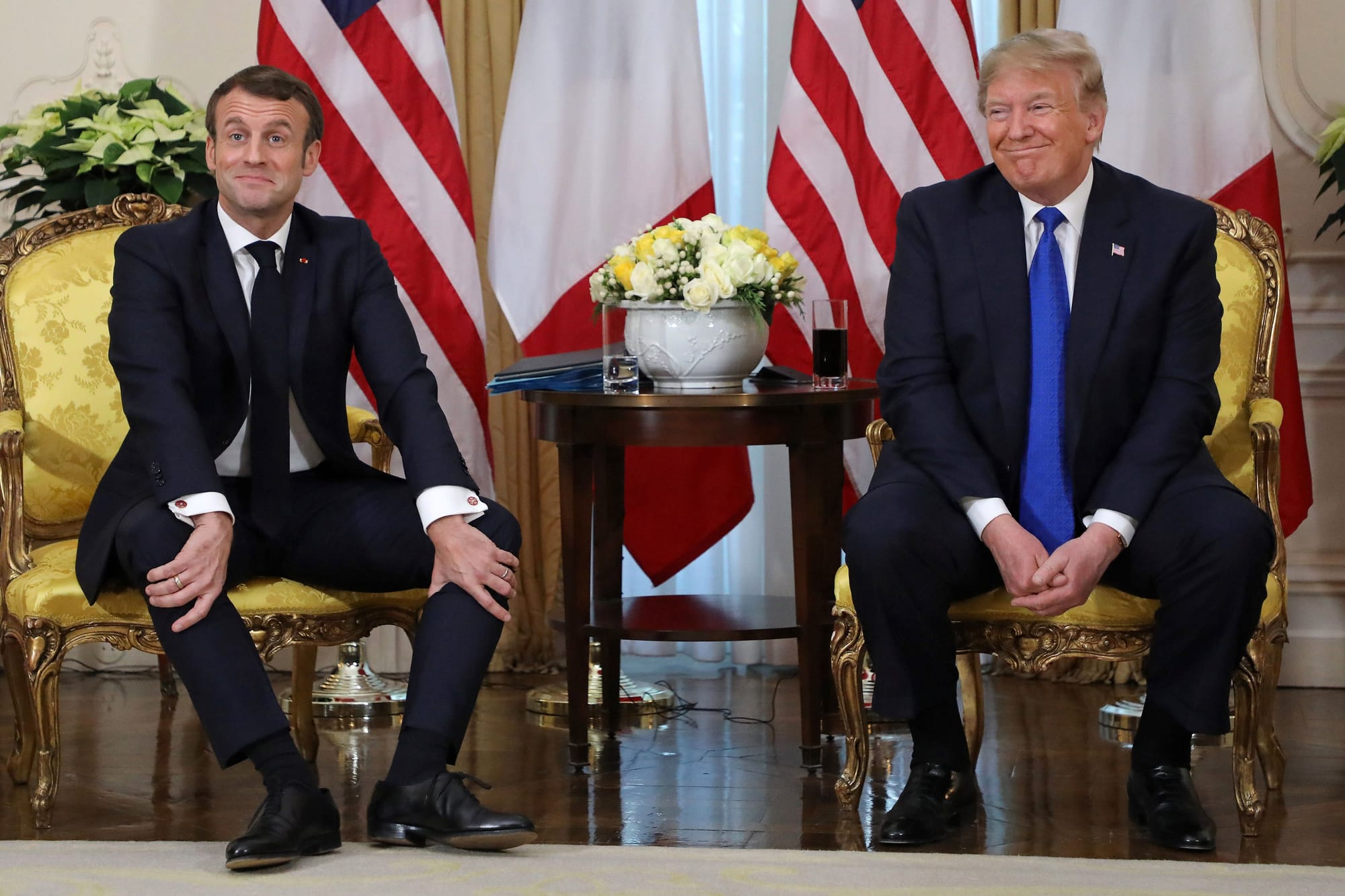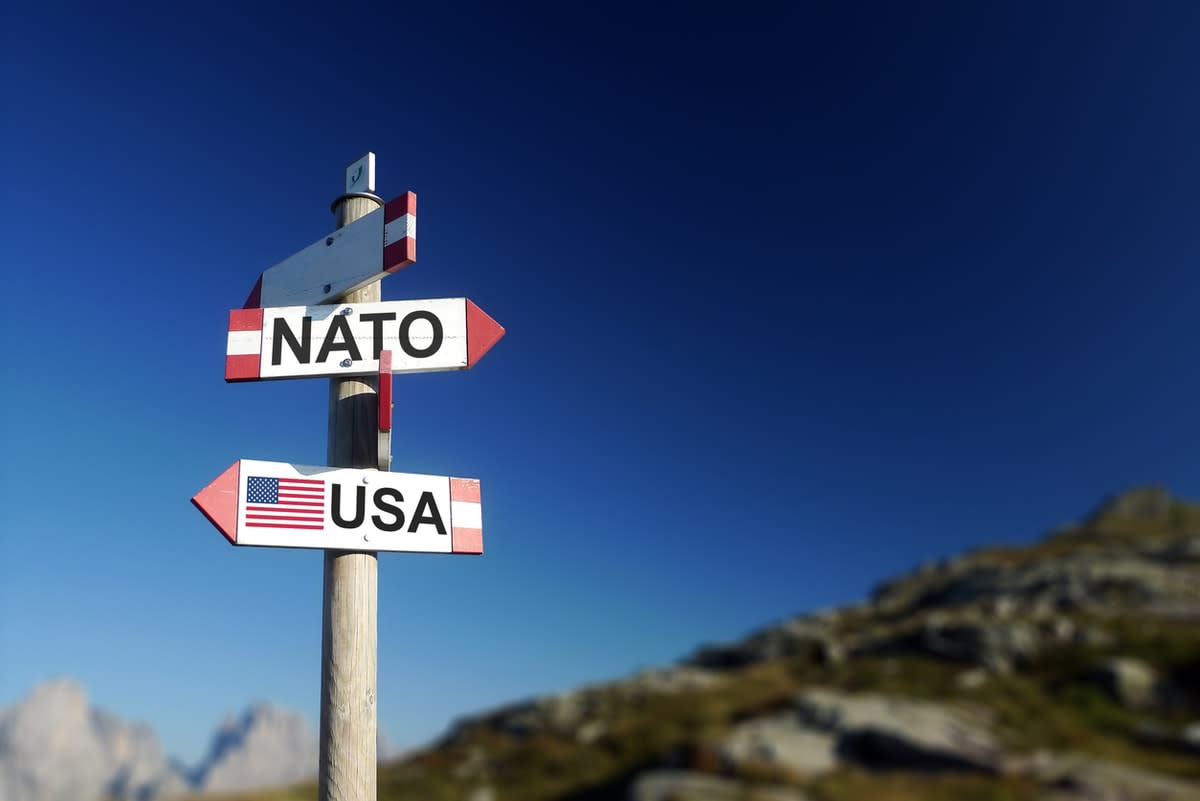
President Donald Trump’s recent trip to Europe for NATO’s 70th anniversary garnered attention as he agitated European leaders, but there’s an important issue behind the trans-Atlantic friction that’s being overlooked.
In less than 12 months, Trump will be tested at the ballot box in the 2020 presidential elections. This will be increasingly foremost in his mind. We should expect that as the election draws closer, the Trump administration will use foreign policy as an opportunity to appeal to voters at home – especially if things get sticky with the developing impeachment process.
Trump’s cantankerous disposition at NATO provides a useful test case. But first, let’s put the NATO event into context and clarify some of the hype.
US-NATO relations
Once again President Trump has used a NATO conference to air his well-known grievances against America’s longstanding strategic partners.
While the spat with France’s Emmanuel Macron may have been the main talking point of the trip, it’s important to look at it in the wider context of history.
The US and France have long had a colourful relationship that has seen its share of leadership squabbles and disagreements. Trump and Macron comes after several others.
In the 1960s, the French developed their own nuclear weapons because they were unconvinced of the credibility of the US nuclear strategy that provided the crucial deterrent to any potential Soviet aggression to Western Europe. President Charles de Gaulle withdrew France from NATO in 1966.
Trump is looking for some wins to take into the election year that will appeal to his support base. If that means upsetting NATO members, so be it.
In 1965, President Lyndon Johnson was challenged by De Gaulle over the future of the United Nations. A year later, France withdrew from NATO over nuclear deterrence in Europe. France wanted American troops out. Johnson’s retort was to ask if that included American soldiers buried in France.
More recently, in 2003, President Jacques Chirac was deeply critical of George W. Bush when he announced the US would invade Iraq.
The strange relationship between Trump and Macron, and their latest jibes at each other, perpetuate the sometimes tense relations American and French leaders have shared.

Trump may have been the loudest and most brash, but his predecessors, George W. Bush and Barack Obama, were also critical of the financial commitments NATO member states were making.
Trump’s muscular position against America’s trans-Atlantic allies may prove to be a case of the bark being worse than the bite. Only time will tell how much he’s really upset the NATO dynamic. More immediately, however, his stance might just play well at the ballot box.
Foreign policy and 2020 presidential election
Trump is three years into his first term. Like all his predecessors at this point, he’ll be looking at winning a second. At the moment, he’s looking for some wins to take into the election year that will appeal to his support base. If that means upsetting NATO members, so be it.
On the home front, trouble is closing in. Impeachment proceedings are moving on. Draft Articles of Impeachment have been drawn up, but they’ve not yet gone to the House for a vote. Ironically, it was a foreign policy miscalculation by Trump that’s bought about his predicament.
At all costs, Trump will seek to evade, obfuscate and deride the process he refers to as a “witch-hunt” . It’s unlikely he’ll resign over impeachment as Nixon did in 1974. Trump is a fighter, and he’ll be looking to replay the hits of his “Make America Great Again” songbook.
On foreign policy, Trump has been unpredictable and roundly criticised. Yet he’s pursued a foreign policy line that, in his view and of those who support him, places American interests ahead of the rest of the world.

This is what he’ll take credit for during the campaign – the imposition of trade tariffs against China, and the European Union and other states to a lesser degree. This, he claimed recently in New York , has been good for America’s business and industries.
On the strategic front, he tweeted that the North Korea threat has been diffused. In a similar vein, he argued recently that America’s withdrawal from the nuclear deal (JCPOA) with Iran, and the ensuing sanctions imposed, has been in the interests of the security of the US.
Trump’s consistently strong line about NATO members not meeting their financial obligations plays into this narrative of foreign policy achievement.
With a zero-sum approach to foreign policy, Trump will proclaim loudly that he’s done great things to restore American power and prestige on the international stage. Additionally, unlike Bill Clinton, George W. Bush or Barack Obama, he hasn’t taken the US into a war.
Read more: Few winners in new world order
These claims will inevitably be cited by Trump when he makes his re-election pitch to voters.
In a 2016 campaign speech about foreign policy, he stated that the US would no longer be in the game of building nations. On this measure, his actions as President have reflected his words.
However, in the same speech he claimed that, under his watch, Washington would once again become a reliable ally and partner. Yet, as his recent trip to NATO showed, he’s ambivalent about the longstanding relationship between the United States and its European allies.
Walked (some) of the talk
Nevertheless, Trump has lived up to some of his 2016 promises.
Despite the fulfilment of some of his foreign policy objectives, Trump’s chaotic and confrontational approach to foreign policy has done damage to Washington’s credibility as an ally. His spat at NATO continues his sowing of the seeds of uncertainty in the credibility of the US as a reliable partner in upholding global security.
Only time will tell. But these points will be conveniently pushed aside in the election year. Trump will continue with his unsettling foreign policy rhetoric, and claim credit for his what he sees as foreign policy victories.





